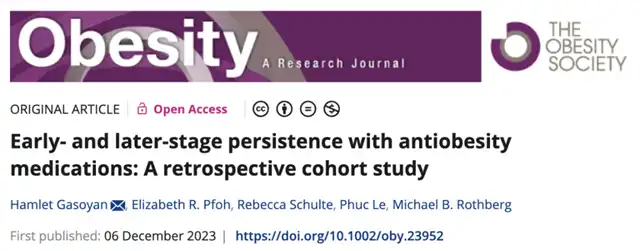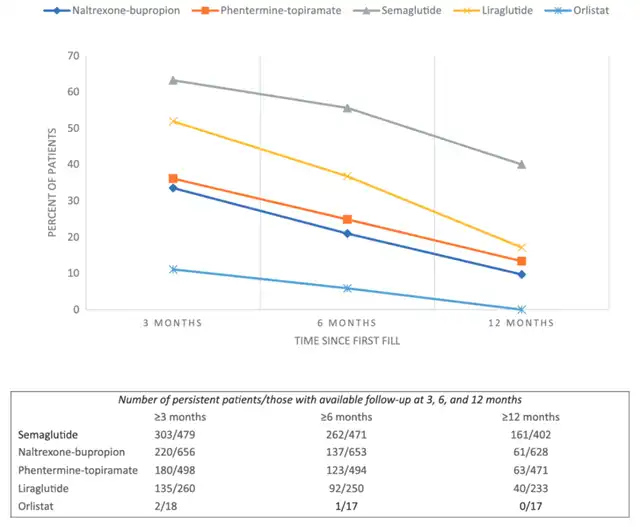Long-Term Adherence to Semaglutide in Obesity Treatment Raises Questions
- Normal Liver Cells Found to Promote Cancer Metastasis to the Liver
- Nearly 80% Complete Remission: Breakthrough in ADC Anti-Tumor Treatment
- Vaccination Against Common Diseases May Prevent Dementia!
- New Alzheimer’s Disease (AD) Diagnosis and Staging Criteria
- Breakthrough in Alzheimer’s Disease: New Nasal Spray Halts Cognitive Decline by Targeting Toxic Protein
- Can the Tap Water at the Paris Olympics be Drunk Directly?
Long-Term Adherence to Semaglutide in Obesity Treatment Raises Questions
- Should China be held legally responsible for the US’s $18 trillion COVID losses?
- CT Radiation Exposure Linked to Blood Cancer in Children and Adolescents
- FDA has mandated a top-level black box warning for all marketed CAR-T therapies
- Can people with high blood pressure eat peanuts?
- What is the difference between dopamine and dobutamine?
- How long can the patient live after heart stent surgery?
Long-Term Adherence to Semaglutide in Obesity Treatment Raises Questions
Due to the tremendous success of Semaglutide, a GLP-1 receptor agonist, it quickly became a household name, particularly after its FDA approval for weight loss under the brand name Wegovy. Originally developed by Novo Nordisk as a glucose-lowering drug for type 2 diabetes, Semaglutide’s ability to mimic the effects of glucagon-like peptide-1 (GLP-1) has proven effective in reducing hunger, food intake, and calorie consumption, making it a standout in the field of weight management. Recent clinical trials have even suggested a potential reduction in cardiovascular disease risk with the use of Semaglutide and other GLP-1 receptor agonists.
However, despite the promising results of new-generation weight loss drugs like Semaglutide, their long-term tolerability remains a challenge.
A recent study published in the Obesity journal by researchers from the Cleveland Medical Center sheds light on the persistence of patients with anti-obesity medications, including Semaglutide.
The study reveals that, among obese patients prescribed weight loss medications (Semaglutide, Liraglutide, Phentermine-Topiramate, Naltrexone-Bupropion, Orlistat), only 44% continued usage after three months, 33% after six months, and a mere 19% after one year.

Specifically, for those using Semaglutide, the percentages of continued usage after three months, six months, and one year were 63%, 56%, and 40%, respectively.
Adherence to these medications, such as Semaglutide, enhances the feeling of satiety more quickly and for an extended period, facilitating effective weight loss. However, the question arises: Why do some obese patients fail to maintain long-term adherence?
It’s not uncommon for patients to discontinue medication, a phenomenon seen in other conditions like type 2 diabetes, chronic obstructive pulmonary disease, and hypertension. Factors influencing medication adherence include the nature of the disease (especially if it lacks noticeable symptoms), various aspects of the healthcare system (such as accessibility to medical care or medication cost), and characteristics of the treatment itself (frequency of dosing or tolerance to side effects). The dosing frequency of GLP-1 medications, for instance, is crucial; individuals using once-weekly GLP-1 drugs like Semaglutide are more likely to adhere than those using daily injections like Liraglutide.
Concerns have been raised about potential side effects of GLP-1 medications. Clinical trials show a discontinuation rate of 15%-25%, with about half attributed to gastrointestinal issues, primarily affecting the stomach and intestines.
Despite these concerns, the overall side effects of GLP-1 medications are often mild to moderate. While some experience nausea in the initial weeks, escalating doses may worsen conditions, leading to diarrhea, constipation, fatigue, and hiccups.
Notably, the sustained weight loss achieved with GLP-1 medications surpasses that seen with other weight loss drugs. Clinical trials suggest that maximum weight loss with GLP-1 medications takes about a year, with approximately 6% achieved within the first 12 weeks, motivating individuals to persist with treatment.
The popularity of GLP-1 medications globally has led to supply shortages, potentially causing some patients to discontinue treatment due to unavailability.
While the sustainability of GLP-1 medications in weight loss is debated, a more pressing concern is what happens when individuals cease this treatment.

Though these medications are hailed as “game-changers” in weight loss, several clinical trials indicate significant weight regain after discontinuation. For instance, participants in a clinical trial using once-weekly Semaglutide experienced more than half of their lost weight rebound within a year after stopping the medication. A recent trial with another GLP-1 medication, Tirzepatide, showed a similar weight regain after discontinuation.
These findings underscore the importance of ongoing medication use for maintaining weight loss. Regardless of the weight loss method employed, individuals typically regain weight once interventions cease, with the biological and energy changes induced by weight loss acting as potential drivers for weight rebound. The unique mechanism of action of these new-generation weight loss drugs, particularly the sustained elevation of artificial GLP-1 levels, may contribute to a higher likelihood of rebound when treatment is halted.
In conclusion, while these “game-changer” weight loss medications make the journey more manageable, the focus should shift towards addressing the primary challenge of weight maintenance. Awareness is crucial, as these new-generation drugs alter the landscape of weight loss, making it easier, but emphasis should be placed on strategies to sustain weight loss over time.
Long-Term Adherence to Semaglutide in Obesity Treatment Raises Questions
(source:internet, reference only)
Disclaimer of medicaltrend.org
Important Note: The information provided is for informational purposes only and should not be considered as medical advice.



